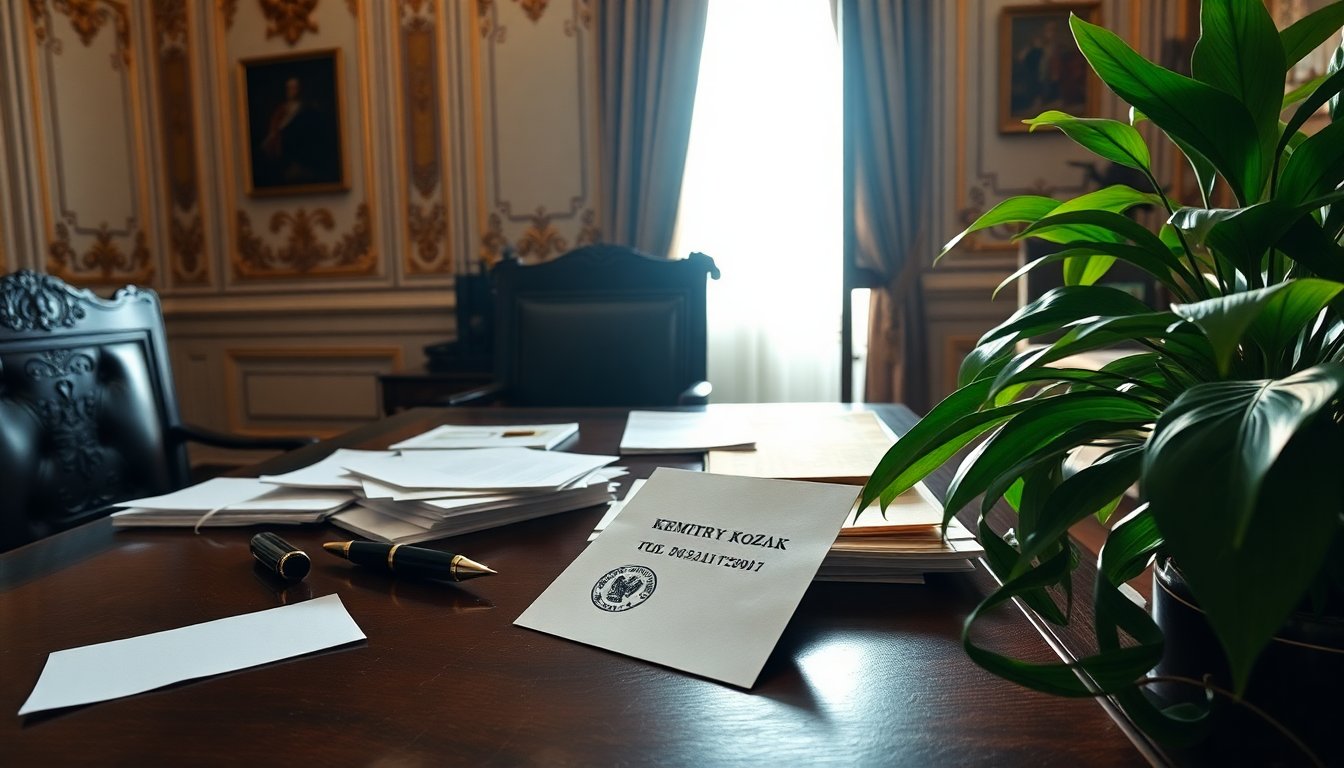Table of Contents
The resignation of former Kremlin Deputy Chief of Staff Dmitry Kozak has raised eyebrows within Russian political circles, especially given his recent correspondence with President Vladimir Putin. In a letter delivered just before his departure in, Kozak expressed his condemnation of the ongoing war in Ukraine. This act suggests a significant internal conflict among the highest ranks of Russian leadership regarding the war.
Initially appointed as Putin’s deputy chief of staff in, Kozak’s opposition to the war became apparent shortly after the conflict escalated in. Reports indicate that when members of the Security Council recognized Putin’s intentions to invade Ukraine, Kozak was notably against the military strategy. Following this, he found himself increasingly marginalized within the Kremlin.
Kozak’s resignation and the letter’s implications
On September 18, 2025, when Kozak officially resigned, he took the bold step of delivering a personal letter to Putin that criticized the war in Ukraine. According to sources close to Kozak, the letter employed strong language to denounce Russia’s actions, indicating a profound shift in his stance and the courage to voice dissent in a highly controlled environment.
Despite the gravity of his message, those familiar with Kozak believe that he does not anticipate any backlash from Putin. In fact, it has been suggested that he might still seek a future meeting with the president, reflecting a complex relationship that belies the apparent dissent expressed in his letter.
The context of his criticisms
In the aftermath of his resignation, Kozak has reportedly spent considerable time abroad, although sources state that his travels are primarily for medical reasons rather than fear for his safety. This period away from the political spotlight allows him to reflect on the challenges facing Russian leadership as the war continues to evolve.
Shifting dynamics among Russia’s elite
The political landscape among Russia’s elite has undergone a dramatic transformation since the commencement of the Ukraine war. In a state-of-the-nation address in 2025, President Putin remarked that the term elite had lost its significance, asserting that true elites are those who serve the nation, contrasting them with those who merely enjoy privileges without contributing to society.
This statement sent ripples through the upper echelons of Russian politics, where officials and business leaders have been scrambling to maintain their influence amid the ongoing conflict. As Putin focuses on military objectives, those who fail to align with his vision risk being sidelined. This has resulted in a landscape where loyalists and hardliners are gaining prominence, while moderate voices like Kozak’s are increasingly rare.
The fear of peace and its consequences
Journalist Farida Rustamova has observed that many in the Russian elite now harbor fears not only of being ousted but also of the implications that peace could bring. The current atmosphere is one of uncertainty, with officials anxious about a potential return of soldiers from the battlefield and the societal reactions that may follow. There is a palpable tension surrounding the notion of accountability for the war’s outcomes, leading to apprehensions about being scapegoated for failures.
Moreover, the recent tragic events, such as the suicide of Federal Transport Minister Roman Starovoit, underscore the extreme pressures faced by those within the system. As the government grapples with the realities of a protracted conflict, the potential for internal dissent grows, and the fear of chaos looms large.
The future of Russian leadership
As the war drags on, the concentration of power in Putin’s hands has intensified, raising questions about the sustainability of such a centralized authority. Observers note that the aging president’s management style often involves delaying direct consequences for those in his circle, preferring instead to maintain a façade of control. Kozak’s departure illustrates the precarious nature of political favor in this environment.
In a time of upheaval, the balance between traditional elites and emerging hardliners will be critical to watch. While Putin appears to favor loyalty, the internal dynamics suggest that dissent and differing opinions may increasingly come to the fore, particularly as the realities of war and its aftermath unfold.


